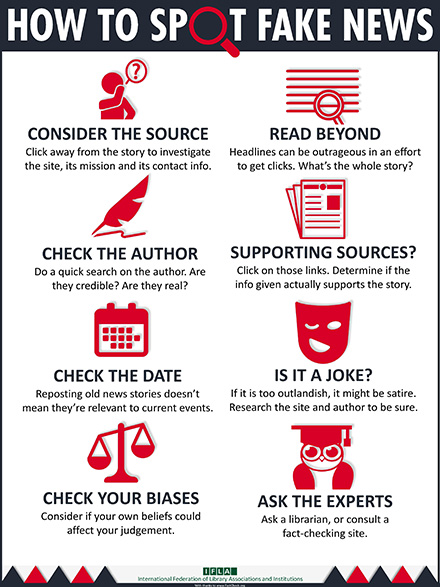jorjabutt14@gmail.com
Since the beginning of the publication of news stories, readers have been susceptible to believing everything they consume from the media. However, in recent years we have seen this become more and more of a problem. Fake news has been a rising issue for many years now, but it is not only up to the journalists to make better ethical decisions while reporting the news; it is also up to the reader to be conscious of their news sources and research the topics they believe to be true.
Social media has played a role in the rise of fake news because of how accessible it is and how easy it is for anyone to release information. While it provides a platform for a public forum, it causes issues when fake news is published and spread to look like actual news coverage. The Pew Research Center released a study showing evidence that Americans use social media more than print newspapers for the daily intake of news. Social media is a catalyst for fake news because of its ability to spread news like wildfire.
These kinds of fake news posts can be shared by anybody and reach audiences that newspapers never had the ability to do. This can be harmful to readers because they can get the wrong information, but it also spreads false information about people who may not have control over it.
Journalists and public relations professionals are being held responsible to fix the vast amount of fake news that are spread daily. In a recent study in 2019 the Pew Research Center released another study that addressed why Americans believed it was up to journalists to fix the fake news issues. 54% of Americans believe that the fake news they encounter has an impact on the confidence in fellow Americans and want to see restrictions put on fake news. While they do not blame journalists for creating false information, 53% believe it is our responsibility to fix it. Journalists must make more ethical reporting decisions because they have a large impact on the public knowledge. Public relations professionals also have a duty to be transparent with their clients as they come across fake news and address it.
Fake news continues to run ramped in society today and cannot be fixed by one group alone. Journalists, politicians, activist groups, and the public all have a duty to be conscious of their news intake and output. Fact checking has never been more important and further research could help put the media back on the right track to reporting correct news and restoring the public's faith in the news.

No comments:
Post a Comment